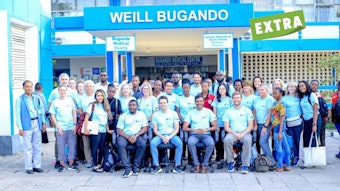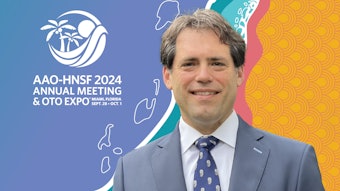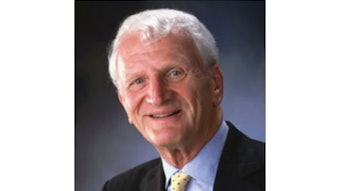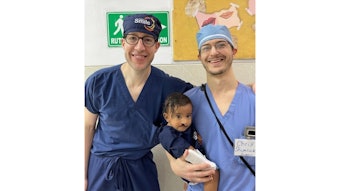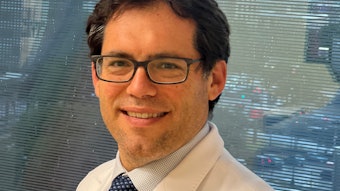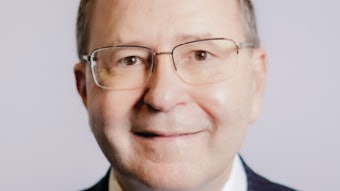Stories from the Road: Blantyre, Malawi
The model in Blantyre is to train local otolaryngologists to stay in the country or the surrounding countries of need.
Steven R. Engebretsen, DO
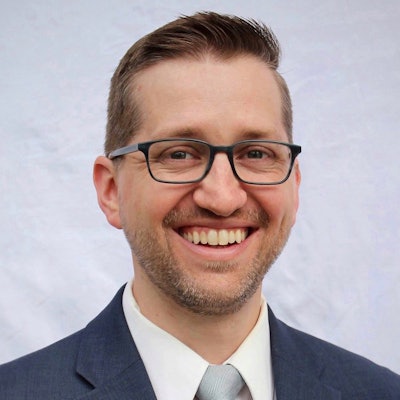 Steven R. Engebretsen, DO
Steven R. Engebretsen, DO
In 2019, Dr. Mulwafu was able to start formally training local physicians. After Dr. Madgy’s passing, the mission trip grew into The Madgy Malawi Foundation in 2021. The goals of the Foundation include primarily supporting the local residency training in Malawi. The Madgy Malawi Foundation’s ongoing expertise on complex patients, support for infrastructure and training, and collaborating with other surgical mission groups improves the educational breadth of Malawi-based trainees.
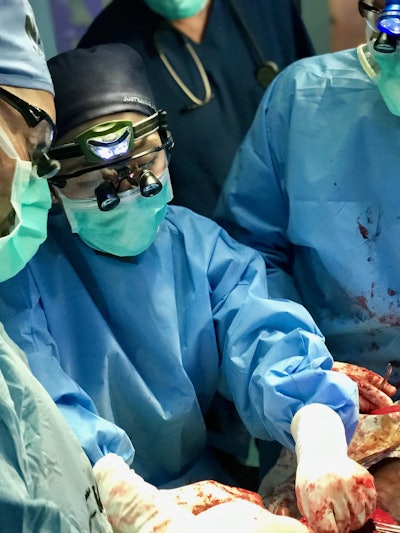 Bo Pang, DO.
Bo Pang, DO.
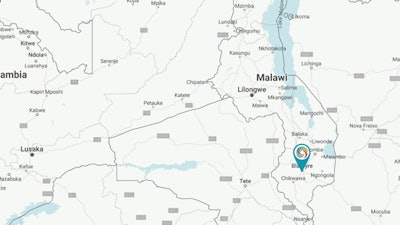 Map of Malawi and nearby Blantyre.
Map of Malawi and nearby Blantyre.
About Malawi and Otolaryngology
Malawi, as it is known today, did not become independent from Great Britain until 1964. Since that time, there have been many sociopolitical changes in the country. Malawi was widely affected by the HIV/AIDS crisis due to a lack of resources, education, and medical access.
Otolaryngology care in Malawi is in high demand because of the overall low access to medical care in the first place. According to the World Health Organization’s most recent assessment, there are only 0.49 physicians per 10,000 people in Malawi, which is one of the lowest on the continent. Blantyre is the only location in the country that provides consistent surgical ENT care. All patients in the clinic and most of the otolaryngology inpatient unit are walk-in only. In the early hours of the day, there are crowds lined up.
Many of these patients’ only mode of transportation is walking. Some walk for days to obtain care. The conditions vary from pediatric respiratory disorders and diseases to stage 4 cancer. Some still cannot be treated because of the complexity of their care and the limited resources regarding chemotherapy, radiation, or even diagnostic modalities. Despite the challenges they face in coming to the ENT unit, the friendly and patient attitude is common among the people treated in Blantyre. This is perhaps why Malawi has been deemed the “Heart of Africa” for the warmth of the people.
“The need is eye-opening, but taking care of patients in such need one by one provides some of the most rewarding experiences in my professional career. Continuing with the program brings me much more than I give!”
– Kyle Robinette, DO, CEO, The Madgy Malawi Foundation
The Madgy Malawi Foundation and the Experience
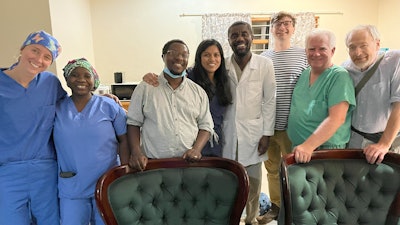 The 2022 Malawi team. Dr. Wakisa Mulwafu is the third from the left.
The 2022 Malawi team. Dr. Wakisa Mulwafu is the third from the left.
Shant A. Korkigian, MD, a head and neck surgeon based in Michigan, started with The Madgy Malawi Foundation in 2022 and describes his impressions returning to Malawi with the Foundation after working as a medical student years prior. “It is so impressive to see what a difference The Madgy Malawi Foundation made with the help of Michigan State University. When I came as a medical student (before the organization existed), there was no public dedicated ENT facilities for nearly 20 million people. Now, where once a football field stood, there is a fully operational ENT clinic, inpatient ward, and operating theater!”
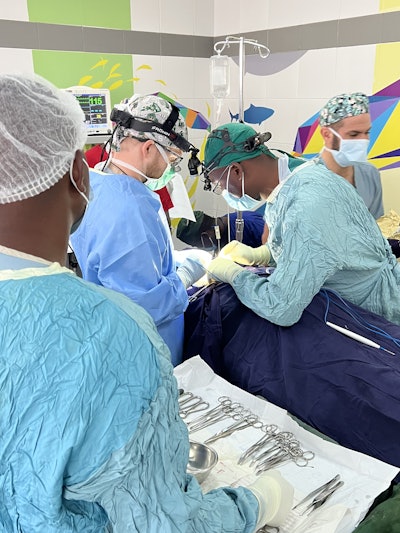 Jake Sims, DO, working with one of the Malawi-based residents.
Jake Sims, DO, working with one of the Malawi-based residents.
Dr. Mulwafu is the local champion who makes the collaboration with the local hospital and government possible. His knowledge of conditions and experience show the many years he has been caring for challenging patients with limited resources. It is obvious that his trainees glean as much as they can from his mentorship. He also is instrumental in coordinating what his trainees want to learn from visiting surgeons such as those in The Madgy Malawi Foundation.
At the conclusion of the trip, the visiting staff continue to engage in daily updates/recommendations on the cared-for patients. The involvement of Dr. Mulwafu and the staff in Blantyre makes this a truly bidirectional learning experience.



